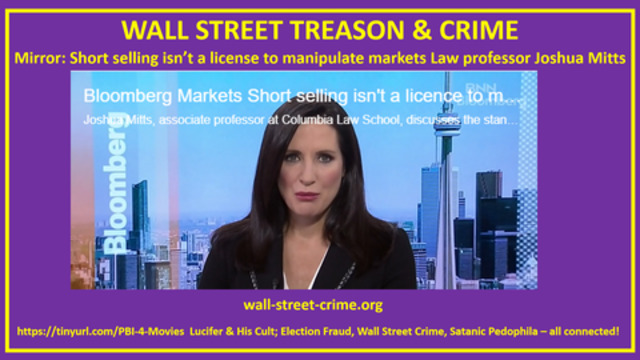Short Selling and the New Market Manipulation
John C. Coffee, Jr. and Joshua Mitts, 18 March 2019
Stock market manipulation has been around since shortly after stock markets were invented. Everyone is familiar with the methodology in the standard “pump and dump” scheme: False rumors are circulated, the stock is bid up by the manipulators, supply might be constrained, and, once the public’s appetite is aroused, the stock is dumped by the manipulators.
But the internet has changed all that. No need exists today for the boiler shop or its battery of phones or even carefully assembled lists of suckers. All that one needs today is to put one’s message (written under a pseudonym) on a blog that features hot news about individual stocks. Of these sites, the best known and most watched is Seeking Alpha, whose “Short Ideas” column contains numerous posts recommending that specific stocks be shorted. Reversing the old pattern, the focus is no longer on touting stocks for an immediate rise, but rather on suggesting a dark downside. Once the professional media may have played a gatekeeper role, refusing to publish wild and unsubstantiated reports. But on the blogs, it is the Wild West today. Continue reading “Article: Short Selling and the New Market Manipulation”

 Joshua Mitts, Ph.D is an Associate Professor of Law at Columbia Law School. Joshua Mitts, who joined the faculty in 2017, uses advanced data science for his research on corporate and securities law. His primary focus is on information disclosure in capital markets, consumer financial protection, and related topics in law and finance. Mitts employs empirical methods, including statistical analysis and machine learning, for his research on short-selling, informed trading on cybersecurity breaches, information leakage and hedge-fund activism, insider trading on corporate disclosure, and information transmission in financial markets.
Joshua Mitts, Ph.D is an Associate Professor of Law at Columbia Law School. Joshua Mitts, who joined the faculty in 2017, uses advanced data science for his research on corporate and securities law. His primary focus is on information disclosure in capital markets, consumer financial protection, and related topics in law and finance. Mitts employs empirical methods, including statistical analysis and machine learning, for his research on short-selling, informed trading on cybersecurity breaches, information leakage and hedge-fund activism, insider trading on corporate disclosure, and information transmission in financial markets.
 Joshua Mitts writes and teaches on securities law and financial contracting. His recent projects study
Joshua Mitts writes and teaches on securities law and financial contracting. His recent projects study